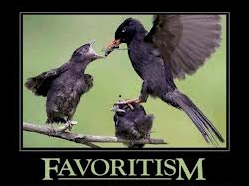One of the most common complaints that I’ve noticed from employees and employee surveys during my many years in customer service consulting has been favoritism—the actual or perceived notion that a manager favors some employees over others. Yet, when managers and leaders are asked if they play favorites, most will reply “No way.” Why the difference in perception? Most often, it’s because we’re not even consciously aware that we’re doing it.
For example, have you ever been promoted to manage your “friends”? And then, you go to lunch with one of your friends twice a week. Guess 
These seemingly innocuous acts happen all the time. However, we must reduce, if not eliminate, them from happening if we want a harmonious and productive team environment. It’s also helpful to our company’s morale if we can tactfully point out favoritism to other managers. They may not realize that they’re playing favorites!
Strategies that Turn it Around:
- Delegate all tasks evenly, within reason. If you MUST delegate to someone whom you don’t trust will complete a task, break it down into smaller components and set smaller check points and deadlines.
- If you go to lunch with an employee who is your friend, you must go to lunch with all of your employees.
- If you want to praise someone and not appear as though you’re playing favorites, be specific about what the deserving employee did and how it demonstrates the goal you and your company are seeking from all employees.
- Communicate, communicate, communicate. For example, if you let someone off work early because she came in early, communicate this reason to the rest of your staff. When you communicate “why,” your employees are more likely to understand and less likely to view you as playing favorites.
Remember: Employees can always “feel” favoritism based on a real reason. If the perception of favoritism is impacting your team, perhaps it’s time to take a step back and observe YOUR behavior. And that’s a decision you can favor!
Have you ever played favorites with an employee without realizing it? Have you ever seen other managers play favorites? What have YOU done to eliminate favoritism? I’d love to read your suggestions in the comments section below.
